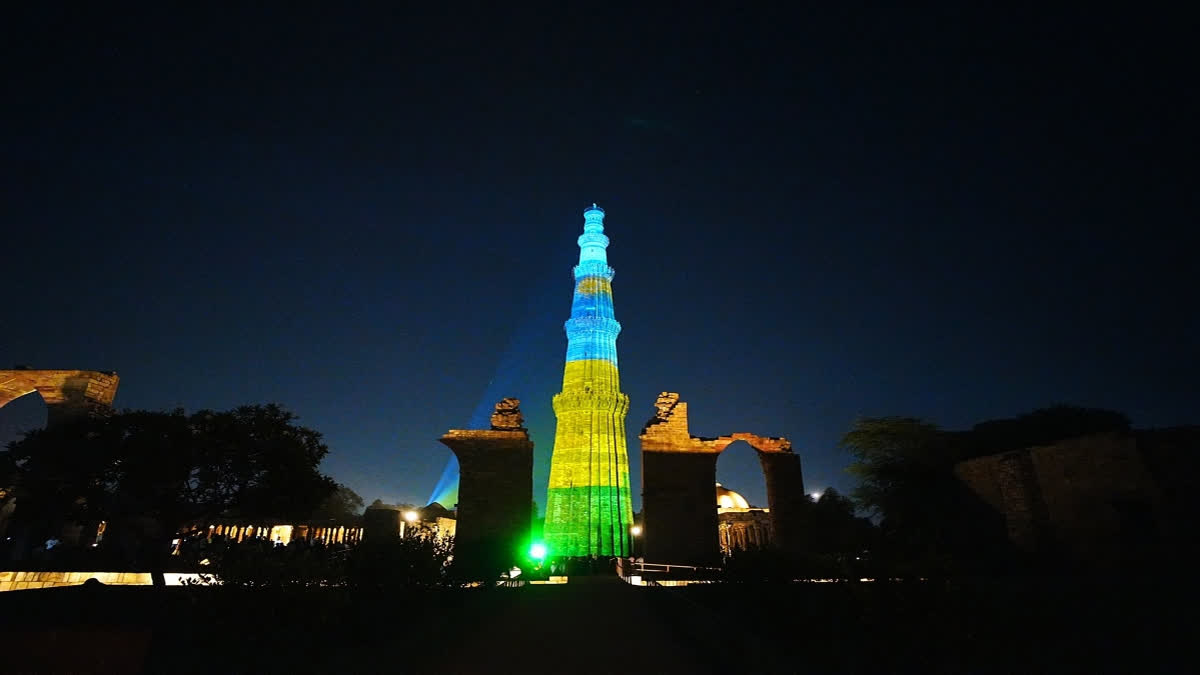New Delhi: The Qutub Minar in Delhi was lit up with the colours of the Rwandan national flag as a gesture to show solidarity with the people of Rwanda, marking the UN International Day of Reflection on the 1994 Genocide against the Tutsi in Rwanda, that took the lives of 8,00,000 individuals.
On the occasion, Secretary (Economic Relations) Dammu Ravi of the Ministry of External Affairs represented India at the 30th commemoration of the genocide in Kargil. In a post on X, MEA spox, Randhir Jaiswal said, “In solidarity with the people of Rwanda, India lit up the Qutub Minar today, marking the UN International Day of Reflection on the 1994 Genocide against the Tutsi in Rwanda. Secy (ER) Dammu Ravi represented India at the 30th commemoration of the genocide today in Kigali”.
About Rwandan genocide
The Rwandan genocide, also known as the genocide against the Tutsi, occurred between April 7 and July 15, 1994, during the Rwandan Civil War. During this period of around 100 days, members of the Tutsi minority ethnic group, as well as some moderate Hutu and Twa were killed by armed Hutu militias.
Although the Constitution of Rwanda states that more than one million people perished in the genocide, the actual number of fatalities is unclear, and some estimates suggest that the real number killed was likely lower. The most widely accepted scholarly estimates are around 5,00,000 to 8,00,000 Tutsi deaths
In 1990, the Rwandan Patriotic Front (RPF), a rebel group composed mostly of Tutsi refugees, invaded northern Rwanda from their base in Uganda, initiating the Rwandan Civil War. Over the next three years, neither side was able to gain a decisive advantage. To bring the war to a peaceful end, the Rwandan government led by Hutu President, Juvénal Habyarimana signed the Arusha Accords with the RPF on 4 August 1993.
Dammu Ravi, Secretary (Economic Relations) in the Ministry of External Affairs, is currently on a visit to Rwanda, Uganda and Kenya from April 7-12, 2024. He will be accompanied by AS (E&SA), Puneet R Kundal. On Sunday (April 7), Dammu Ravi called on MoS for Foreign Affairs James Kabarebe, Minister of Finance and Economic Planning Uzziel Ndagijimana and MoS for Agriculture Eric Rwigamba of Rwanda in Kigali.
The visit by the Secretary (ER) is a reaffirmation of India's commitment to further strengthen its ties of friendship with Rwanda, Uganda and Kenya and to maintain the momentum of high-level contacts between India and countries in Africa, post the entry of the African Union as a permanent member of G20.
Read more: Trial Of Elderly Rwanda Genocide Suspect Opens At UN Court



